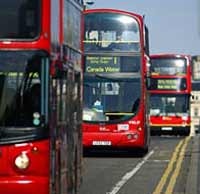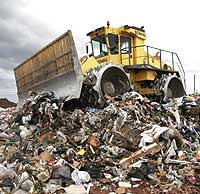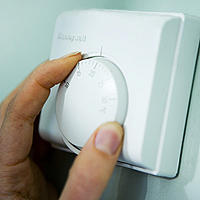Think before you travel

Personal transport contributes 18% of total UK CO2 emissions. Travelling by car or plane produces a high percentage of these emissions. Below are tips and suggestions on how to travel with a lower footprint.
First steps
- Drive less and share your commute with friends or colleagues
- Take in more of Britain’s countryside for long weekend breaks and cut out those short haul flights to Europe
- Walk or cycle for short trips and get fit in the process
- Take trains and buses when you’re going on holiday. There are plenty of different overseas train networks; to find out more visit The Man in Seat Sixty-One
- Offset your flight emissions with a Gold Standard offset product, such asMyclimate, atmosfair or climate friendly
- If you have the flexibility, work from home one day a week
Challenge yourself
- Join a car club and save on MOT, insurance, road tax, repairs, parking and petrol costs. Every car club car is the equivalent of taking five cars of the road
- If you are buying a new car, investigate more energy efficient or hybrid models
- If you do a school run why not organise a walking bus for your children and their friends? It’s more social and helps keep your children healthy, not to mention the money saved from petrol and other car costs
- For those who only do short trips, look into buying an electric car
- Persuade your employer to provide safe and secure bicycle storage and shower facilities for keen cyclists
To buy or not to buy

As consumers, we can all consciously try to buy less. But we can also make simple changes to our shopping patterns and use our purchasing power to support eco-friendly products, which are less damaging to the environment.
First steps
- Take reusable bags to do your weekly shop to avoid accumulating mounds of disposable ones
- Buy products with less packaging. You will reduce the amount of waste going to landfill
- Choose timber products certified by the Forest Stewardship Council(FSC) They come from well-managed forests.
- Buy recycled products where possible, such as recycled paper and toilet paper
- Use rechargeable batteries rather than disposable ones
- Give unwanted furniture and clothes to a charity shop
- Use biodegradable bin bags
- Don’t upgrade your mobile phone and gadgets every year – wait until they are defunct
Challenge yourself
- Save £££s on second hand items or give your unwanted stuff a good home by checking out freecycle
- Recycle old mobile phones. Try ShP.
- Buy the most energy efficient electrical appliances you can afford and over the years you will save money on your electricity bill
- Opt for environmentally friendly cleaning products
- Buy second-hand or antique furniture
- As your children grow up, pass on their clothes, prams, cradles and other items to friends and family or donate them to a recycling project
- Use cloth nappies rather than disposables
Save energy

Save energy in your home
If you reduce the amount of energy you use in the home, not only will you cut your energy bills, but you will be playing your part in reducing your impact on climate change. The following tips will enable you to reduce your energy usage and save money.
First steps
First steps
- Replace your light bulbs with energy efficient ones; they last longer and will cut the cost of your electricity bill
- Turn down your thermostat by just a degree and slash 10% off the energy used in heating your home
- Opt for a shower rather than a bath, but try to avoid power showers
- Turn off your electrical appliances (DVDs, mobile phone chargers, TVs, computers, stereos) at the wall. Every year the country spends £730m on appliances being left on standby
- Get a free Home Energy Check from The Energy Saving Trust
- Run your fridge at between 3-5°C
- Turn down the hot water to 60°C
- Draw your curtains at dusk and maintain the heat in your rooms
- Set your washing machine to 30-40°C and try to dry your clothes naturally
Challenge yourself
- Improve your loft insulation - up to a third of your household heat will escape through an uninsulated loft. Grants are available from The Energy Saving Trust
- Insulate your home's cavity walls
- Lag your boiler and pipes to prevent heat loss
- Insulate your hot water tank
- Install double or triple glazing
- There are grants available for solar hot water through the Low Carbon Buildings Programme. For further information about solar hot water, visit The Energy Saving Trust
Again, most of this research I've found, off of the WWF website, is things that most people already know and are aware of, but they simply don't have the time or motivation to change their actions, and translating some of these tips into stamps would be incredibly difficult.

No comments:
Post a Comment